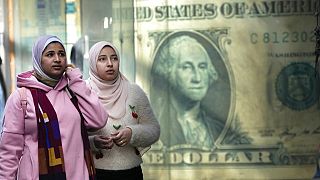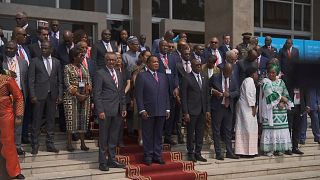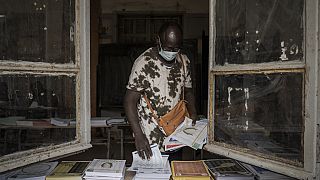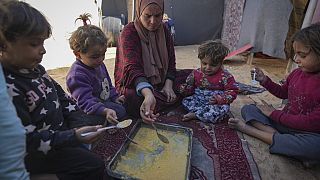Republic of the Congo
The rise in food prices in the Republic of Congo continues despite the measures taken by the government to combat the high cost of living.
In October 2022, Brazzaville exempted imported products from customs duties before publishing a decree in December of the same year to "freeze the prices of basic necessities". These measures were welcomed by civil society, but the reality on the market is quite different.
"When the agents from the trade department arrive, they give their prices. But when their backs are turned the prices change. Mustard that used to cost 750 CFA francs is now 1500 CFA francs," exclaims a trader passionately.
"The traders should do a follow-up. While we were still paying customs, a bag cost 9500 F CFA, now that we have been exempted, it has risen to 14000 F CFA. The Congolese state is sovereign when it comes to setting prices, people have to carry them out," commented a housewife.
Food at a glance
In its latest update on food inflation, the World Bank points out that more than 90% of countries experienced inflation above 5% in September, and that the increase was much higher in food.
An increase of 18% for wheat between October 2021 and October 2022, 27% for maize and 10% for sunflower: prices that will remain high until the end of 2024, stresses the Washington-based institution, which is alarmed at the catastrophic situation of poor countries according to the french media Le Monde.
Africa's seventh largest producer of black gold is unfortunately not spared. In Congo-Brazzaville, being able to make one or two meals a day of sakasaka or ébémbé ya Adoula broth has become a dail fight for most households.
Despite its agricultural potential, the country is largely dependent on imports, which cost nearly 700 billion CFA francs a year. To avoid bankruptcy in the face of this tariff shield, importers and wholesalers are asking for more room to manoeuvre.
Prise increase and Inflation
The experts of the Monetary and Financial Committee of the Congo had announced, in a communiqué published on 13 May 2014, that the country's inflation rate could reach 11% during 2014. Since then, the situation has not changed significantly. The IMF's latest forecasts on the global economic situation predict a slowdown in economic growth, a rise in inflation and an increase in debt risks.
The return to positive growth in 2022 in the Republic of Congo could be marked by a surge in inflation, which is expected to rise to 2.8% during the year, according to official government data in its medium-term debt strategy. In 2023, inflation would be 3% and remain there until 2024, according to the national daily Les Dépêches de Brazzaville.
Jean Claude Mabiala, President of the Consumers' Rights Association, puts it in Layman's terms :
"There is a problem with the stock of traders who have not been able to sell their stocks that they bought before the exemption. We are convinced that according to the explanations given to us by the ministry's agents and some traders, by February I believe that there will be a little more impact. They have to display the prices and when the prices do not reflect what they are selling, it is a big mistake and we also ask consumers to watch out for that if they see that they have to react or else they will contact the trade officials so that these crooked traders are arrested."











01:10
Spain’s left-wing government stands out on migration policy in the EU
01:11
Climate crisis takes centre stage at G20 summit in Brazil
01:09
Nigeria's inflation rate surges as food prices escalate
01:26
Zimbabwe’s Climate-Smart Agriculture: Empowering Farmers through Resilience and Innovation
08:00
Exploring Algeria's maritime potential: How key ports like Annaba and Djen Djen drive growth
01:29
Political analyst says Donald Trump's win moves US to the right